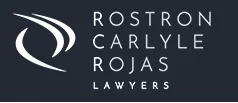The Corporations Amendment (Statutory Minimum) Regulations 2021 increase the threshold at which a creditor can issue a statutory demand on a company from $2,000 to $4,000.
The increase will come into effect from 1 July 2021.
The new statutory minimum will apply to all statutory demands served on or after 1 July 2021.
RECAP: What is a creditor's statutory demand?
A statutory demand is a document that is, or purports to be a demand served upon a company under s459E of the Corporations Act 2001 (Cth). The central function of a statutory demand is to facilitate proof of a company's inability to pay its debts, by creating a rebuttable statutory presumption of insolvency (in the event that the recipient of the statutory demand fails to comply with it).
Failure to comply with a statutory demand (within the prescribed 21-day period following valid service) can have devastating effects on an otherwise solvent company. Failure to comply with a valid statutory demand may lead to the company being wound up, and placed into liquidation.
The effect of a valid statutory demand, is that the debtor (recipient of the demand) must within 21 days of being (validly) served with the statutory demand, do one of 3 things (in the absence of the demand being formally withdrawn):
- Make a payment of the amount (as claimed) in the statutory demand in full; or
- Reach an agreement with the creditor as to payment (such as a compromised settlement or payment arrangement); or
- Apply to the Court (being a Supreme of Federal Court), to have the statutory demand set aside.
A statutory demand must comply with several formal requirements, including that it must be in the correct form, contain the prescribed information and must relate to an undisputed debt which is in excess of the statutory threshold (being $4,000 from 1 July 2021). The statutory demand must also be validly served on a company recipient (pursuant to the relevant service provisions in the Corporations Act 2001 (Cth).
If a statutory demand is non-compliant and contains a substantial defect, it may not be an effective demand. Relying on a defective statutory demand may result in adverse cost orders being made against the issuing party by the Court.
If you need to serve a statutory demand, or you have been served with a statutory demand, you should immediately seek assistance from one of our qualified lawyers. If you have received a statutory demand, do not ignore it.


